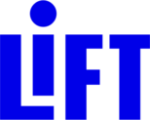By Annette John-Hall, Inquirer Columnist
 I walked down to Thomas Paine Plaza the other day to see how the Occupiers were making out in their new, designated home.
I walked down to Thomas Paine Plaza the other day to see how the Occupiers were making out in their new, designated home.
It was hard to tell, based on the half-dozen or so folks hanging out. I couldn’t tell whether they were sitting in or simply sitting down.
That’s the thing about Occupy: Its presence is mostly visual. When its members aren’t visibly agitating, you never know what effect they’re having.
And, yes, some students do have a problem with a movement made up, in large part, of their peers.
“All I see,” says Peter Yager, a Drexel anthropology major, “is a bunch of middle-class kids who can’t pay off their student loans.”
So instead of occupying the streets, Yager and other Drexel student volunteers fight the power by helping the 99 percent empower themselves – all while earning class credit.
Now that’s what I call a people-powered movement.
Here’s how it works: Students volunteer at LIFT-Philadelphia, part of a national nonprofit founded by a Yale sophomore that works with neighborhood residents to help them make ends meet.
And who doesn’t need a little lift these days? Students help residents with things as simple as operating a computer mouse or as complicated as accessing the health-care maze.
Besides the free services offered, the biggest benefit is intangible – stereotypes get shattered, replaced by shared experiences.
“There’s a shift in perspective,” executive director Josh Romalis says. “The more the student and client work together, the more they realize we’re all in this together. That’s a powerful thing.”
Beyond assumptions
The idea of a service-based class appealed to Yager. At the same time, the “otherness” of a young white guy coming in to “enlighten” a predominantly African American community in West Philly bothered him.
Yager knows a little something about assumptions. To look at him, you would never guess he was 27, grew up in poverty on a reservation in Montana, or served five tours in Iraq, but he has.
Same thing with Nathan Miller. At first glance, Miller looks like any other fresh-faced student, but it turns out the 27-year-old was addicted to heroin, formerly incarcerated, and homeless for years. He turned his life around with the help of the same kind of organization he now volunteers for.
“Recently, I had a client who had been imprisoned and was living in a halfway house,” he said. Miller shared that he had been locked up, too, which allowed the white student and the black client to relax and work comfortably together.
Granted, most student volunteers haven’t experienced the ways of the world like Yager and Miller have. Still, folks can’t help but appreciate LIFT’s welcoming and nonjudgmental environment, especially at a time when they could use a little empathy.
Angela Allen had just about hit rock bottom when she looked up and saw the LIFT sign shining like a beacon of hope as she walked through her West Philadelphia neighborhood three years ago.
“I just remember thinking about that song by KC and the Sunshine Band, ‘I Get Lifted,’ ” Allen said. “I came inside, and I mean to tell you, that was the beginning of a relationship I will always hold dear.”
Not only was Allen, 55, going through treatment for a life-threatening illness, she had been laid off as a nurse’s assistant and had separated from her husband. LIFT volunteers helped her become more computer literate, access food stamps, and enroll in a mortgage-reduction program.
They even helped her land a good job as a hotel banquet manager. She was scheduled to begin her job nine days after life tossed her another curve in 2010 – this time a heart attack that put her in the hospital for three months.
LIFT volunteers visited her throughout her hospitalization. Now they are helping her polish up her resumé once more.
“I applaud civic engagement. Everybody has a right to protest,” says Cyndi Rickards, the Drexel sociology professor whose students volunteer at LIFT. “But can you imagine if we took all that manpower and money [of the Occupy movements] and funneled it into an operation like this?”
Talk about teaching a man how to fish.
Contact Annette John-Hall at 215-854-4986, [email protected], or @Annettejh on Twitter.
